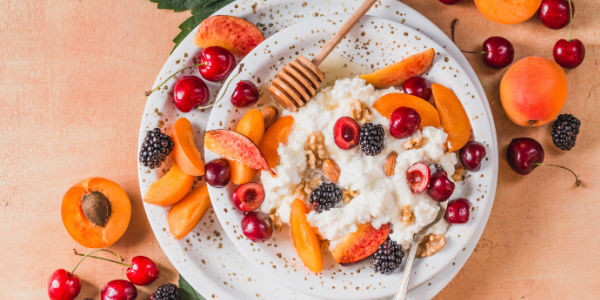
With sugar found in a wide variety of foods, it is no surprise most individuals consume too much of it (or an estimated average of over 60 pounds of added sugar per year)! Deliberating the associated health consequences of added sugars, trying to limit its intake by embracing sugar alternatives, such as erythritol, may seem worthwhile. But if making the conscious switchover from sugar, what might be the erythritol dangers and side effects?
What Is Erythritol?
Erythritol is one of the many sugar alcohols, combinations of both sugar and alcohol chemical structures. And despite its name, sugar alcohols contain no alcohol whatsoever but do provide the ending '-ol' to their name - erythritol, sorbitol, xylitol, etc. Sugar alcohols can also occur naturally in several plant-based foods, including mushrooms, cherries, asparagus, and sweet potatoes. Most commonly, erythritol is used in many commercial products to offer sweetness without the addition of unwanted sugars and calories. Food products labeled as "sugar-free" or "low-sugar" suggests the product may contain a sugar substitute such as erythritol. To identify whether or not erythritol is present, examine the ingredient label in the product packaging. You may further notice, if compared to its sugar-containing counterpart, the sugar-free product may contain a lower carb and sugar content, as erythritol contains a miniscule calorie load (0.2 calories per gram).
The Benefits of Erythritol
As previously mentioned, erythritol sweetens numerous products without the use of calorie-containing sugars. This characteristic is valuable for individuals watching sugar intake, especially if managing diabetes or following a low-carb diet. Also being low on the glycemic index, erythritol will not cause dramatic spikes in blood sugar. Dentists have also encouraged its use as a preventative measure against dental decay, that often aligns with high sugar intake.
Erythritol is also available for purchase in most health food stores and online, allowing individuals to put it to use in the comfort of their own home. Its availability offers ingredient control, which may be beneficial considering commercial erythritol-containing products likely include undesired ingredients such as unhealthy fats or refined flours.
Erythritol Side Effects
When it comes to the most common erythritol danger, one consequence generally comes to mind: gastrointestinal (GI) upset. Even more specifically, stomach cramps and diarrhea are claimed to arise. Such disturbances occur related to its digestion process, as it is not completely absorbed in the digestion tract. However, it is speculated only 10 percent of the erythritol consumed enters the colon, leaving the other 90 percent excreted through urinary processes.
The potential for GI upset is often greater in individuals with irritable bowel disease. Also known as IBS, this common disorder affects the large intestine (or colon) and may cause cramping, abdominal pain, bloating, gas, diarrhea, and constipation. This chronic condition requires long-term management, generally by managing diet, lifestyle, and stress. Additionally, avoiding common "trigger" foods may reduce unpleasant GI symptoms and include cauliflower, broccoli, beans, soy beans, and sugar substitutes.
Aside from GI consequences, claims suggest sugar substitutes and alternatives can reduce the ability to feel full. When digesting food, the brain and stomach connect and trigger satiety-regulating hormones. Since sugar alcohols are largely undigested, the body may be deprived off important satiety signals, potentially leaving it hungry for more food. This missed connection can ultimately increase the urge to seek out additional food items and overeat.
Is Erythritol Safe?
Erythritol use can certainly be consumed in a safe manner, yet is dependent on the individual's tolerance, as some are more sensitive to its effects. If managing IBS, its use should be urged with higher caution to lessen unpleasant effects. However, health experts suggest it provokes lesser GI upsets compared to other sugar alternatives and consuming less than 50 grams of erythritol may further lower the risk of GI symptoms.
In general, it is important to understand the words "sugar-free" and "low-sugar" do not equate to "healthy." Products using sugar substitutes and alternatives may still be rich in both carbohydrates and fats. All-in-all, a well-balanced diet should not be replaced by those "sugar-free" products. Limiting such products and embracing healthful meals ensures balanced nutrients and limits the risk of unpleasant gastrointestinal symptoms.







